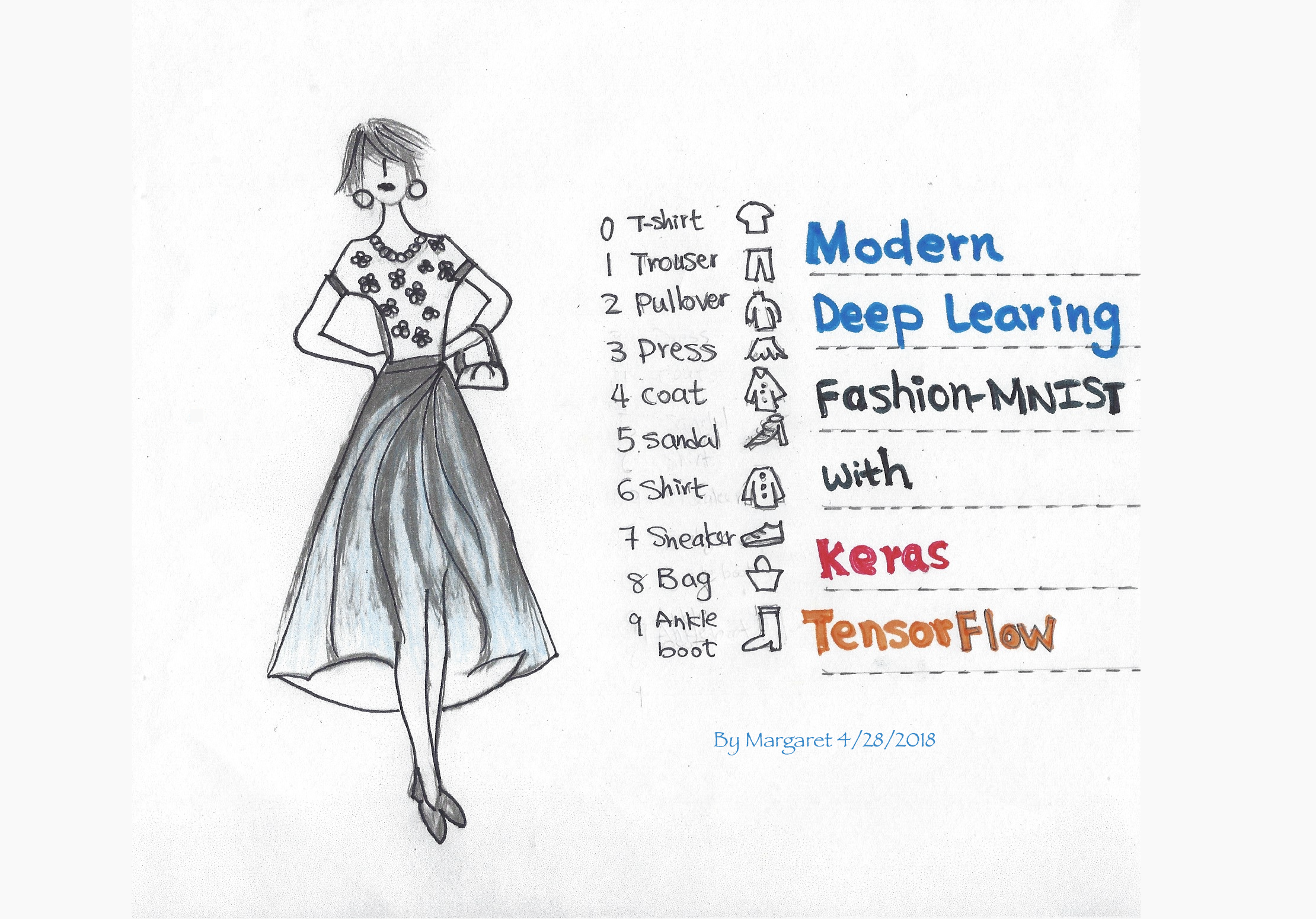
import tensorflow as tf
from tensorflow import keras
import numpy as np
import matplotlib.pyplot as plt
print(tf.__version__)
print(np.__version__)
2.11.0 1.21.5

fashion_mnist = keras.datasets.fashion_mnist
# 4개의 데이터 셋 반환(numpy 배열)
(train_images, train_labels), (test_images, test_labels) = fashion_mnist.load_data()
Downloading data from https://storage.googleapis.com/tensorflow/tf-keras-datasets/train-labels-idx1-ubyte.gz 29515/29515 [==============================] - 0s 0us/step Downloading data from https://storage.googleapis.com/tensorflow/tf-keras-datasets/train-images-idx3-ubyte.gz 26421880/26421880 [==============================] - 4s 0us/step Downloading data from https://storage.googleapis.com/tensorflow/tf-keras-datasets/t10k-labels-idx1-ubyte.gz 5148/5148 [==============================] - 0s 0s/step Downloading data from https://storage.googleapis.com/tensorflow/tf-keras-datasets/t10k-images-idx3-ubyte.gz 4422102/4422102 [==============================] - 1s 0us/step
print("학습용 데이터 : x: {}, y:{}".format(train_images.shape, train_labels.shape) )
print("테스트 데이터 : x: {}, y:{}".format(test_images.shape, test_labels.shape) )
학습용 데이터 : x: (60000, 28, 28), y:(60000,) 테스트 데이터 : x: (10000, 28, 28), y:(10000,)
class_names = ['T-shirt/top', 'Trouser', 'Pullover', 'Dress', 'Coat',
'Sandal', 'Shirt', 'Sneaker', 'Bag', 'Ankle boot']
print("학습용 데이터의 레이블 ", np.unique(train_labels) )
학습용 데이터의 레이블 [0 1 2 3 4 5 6 7 8 9]
plt.figure()
plt.imshow(train_images[0]) # 첫번째 이미지 데이터
plt.colorbar() # 색깔 표시바
plt.grid(True) # grid 선
plt.show()
fig = plt.figure(figsize=(20,15))
for i in range(25):
ax = fig.add_subplot(5, 5, i+1, xticks=[], yticks=[])
ax.imshow(train_images[i], cmap=plt.cm.binary)
ax.set_xlabel(class_names[train_labels[i]], fontsize=16)
plt.show()
model = keras.Sequential([
keras.layers.Flatten(input_shape=(28, 28)),
keras.layers.Dense(128, activation='relu'),
keras.layers.Dense(10, activation='softmax')
])
model.compile(optimizer='adam',
loss='sparse_categorical_crossentropy',
metrics=['accuracy'])
hist = model.fit(train_images, train_labels,
validation_data=(test_images, test_labels),
epochs=10, batch_size=32)
Epoch 1/10 1875/1875 [==============================] - 17s 9ms/step - loss: 3.1813 - accuracy: 0.6790 - val_loss: 0.7955 - val_accuracy: 0.7122 Epoch 2/10 1875/1875 [==============================] - 17s 9ms/step - loss: 0.6757 - accuracy: 0.7405 - val_loss: 0.6648 - val_accuracy: 0.7465 Epoch 3/10 1875/1875 [==============================] - 14s 8ms/step - loss: 0.5903 - accuracy: 0.7852 - val_loss: 0.7310 - val_accuracy: 0.7202 Epoch 4/10 1875/1875 [==============================] - 13s 7ms/step - loss: 0.5519 - accuracy: 0.8057 - val_loss: 0.5648 - val_accuracy: 0.8068 Epoch 5/10 1875/1875 [==============================] - 14s 7ms/step - loss: 0.5353 - accuracy: 0.8138 - val_loss: 0.6124 - val_accuracy: 0.7947 Epoch 6/10 1875/1875 [==============================] - 15s 8ms/step - loss: 0.5173 - accuracy: 0.8188 - val_loss: 0.5226 - val_accuracy: 0.8235 Epoch 7/10 1875/1875 [==============================] - 13s 7ms/step - loss: 0.5104 - accuracy: 0.8216 - val_loss: 0.5949 - val_accuracy: 0.8075 Epoch 8/10 1875/1875 [==============================] - 12s 6ms/step - loss: 0.4942 - accuracy: 0.8261 - val_loss: 0.5689 - val_accuracy: 0.8183 Epoch 9/10 1875/1875 [==============================] - 11s 6ms/step - loss: 0.4882 - accuracy: 0.8302 - val_loss: 0.5149 - val_accuracy: 0.8274 Epoch 10/10 1875/1875 [==============================] - 13s 7ms/step - loss: 0.4934 - accuracy: 0.8277 - val_loss: 0.5982 - val_accuracy: 0.7978
test_loss, test_acc = model.evaluate(test_images, test_labels, verbose=2)
print('\n테스트 정확도:', test_acc)
313/313 - 1s - loss: 0.4957 - accuracy: 0.8347 - 1s/epoch - 3ms/step 테스트 정확도: 0.8346999883651733
loss = hist.history['loss']
val_loss = hist.history['val_loss']
epochs = range(1, len(loss) + 1)
plt.plot(epochs, loss, 'b--', label='Training loss')
plt.plot(epochs, val_loss, 'o-', label='Validation loss')
plt.title('Training and validation loss')
plt.xlabel('Epochs')
plt.ylabel('Loss')
plt.legend()
plt.show()
plt.clf() # 그래프를 초기화합니다
acc = hist.history['accuracy']
val_acc = hist.history['val_accuracy']
plt.plot(epochs, acc, 'b--', label='Training acc')
plt.plot(epochs, val_acc, 'r', label='Validation acc')
plt.title('Training and validation accuracy')
plt.xlabel('Epochs')
plt.ylabel('Accuracy')
plt.legend()
plt.show()
# 테스트 세트에서 이미지 하나를 선택합니다
img = test_images[0]
print(img.shape)
# 이미지 하나만 사용할 때도 배치에 추가합니다
img = (np.expand_dims(img,0))
print(img.shape)
(28, 28) (1, 28, 28)
np.set_printoptions(precision=8, suppress=True)
predictions_single = model.predict(img)
print(predictions_single)
idx = np.argmax(predictions_single[0])
print(idx)
print(class_names[idx])
1/1 [==============================] - 0s 34ms/step [[0. 0. 0. 0. 0. 0.03429338 0. 0.14071567 0.00000008 0.82499087]] 9 Ankle boot
import os
path = os.path.join(os.getcwd(), "dl_model")
savefile = os.path.join(path, "my_model_fashion.h5" )
model.save(savefile)
!dir dl_model
D 드라이브의 볼륨: BackUp
볼륨 일련 번호: 4EB1-0AD7
D:\GitHub\DeepLearning_Basic_Class\dl_model 디렉터리
2022-11-21 오후 04:30 <DIR> .
2022-11-21 오후 04:30 <DIR> ..
2022-11-21 오후 04:30 1,247,056 my_model_fashion.h5
1개 파일 1,247,056 바이트
2개 디렉터리 250,602,049,536 바이트 남음
# 모델을 불러온다.
load_model = keras.models.load_model(savefile)
load_model
<keras.engine.sequential.Sequential at 0x225651b23a0>
load_model.evaluate(test_images, test_labels, verbose=2)
313/313 - 1s - loss: 0.5982 - accuracy: 0.7978 - 783ms/epoch - 3ms/step
[0.598209023475647, 0.7978000044822693]